2nd Spanish HPC Combustion Workshop
Red Española de Supercomputación
September 27th, 2019
Barcelona Supercomputing Center (BSC)
Department of Computer Applications in Science and Engineering
September 27th, 2019
Barcelona Supercomputing Center (BSC)
Department of Computer Applications in Science and Engineering
The use of numerical simulations in the context of High-Performance Computing (HPC) as a tool for design and understanding modern combustion systems is becoming increasingly important in the last decade as more computing power is currently available. However, the modelling of combustion systems is very demanding in terms of physical models and algorithms, since it not only requires the modelling of combustion and turbulence, but also their interactions with additional phenomena such as atomization, vaporization, phase change, turbulent mixing and stirring. The interaction of the flame with the surroundings is also of crucial importance with influence on different aspects such as near wall behaviour, heat losses or fluid/structure interactions. Furthermore, combustion process usually involves large number of reacting species and radicals depending on the fuels leading to multiscale and multiphysics problems with large disparity of time and length scales. All aspects of combustion simulations inherently need large number of computing resources and this community is well known to be an important player in HPC-related activities worldwide.
The 2nd Spanish HPC combustion workshop is dedicated to present the state of the art in modelling and simulation techniques for combustion applications in the national context with representative research institutions. The topics go from multiphase flow calculations, combustion instabilities, alternative fuels, large-eddy simulations, numerical methods for reacting flows to advance multiphysics applications. The event honours the participation of three invited speakers: José M. Desantes, Edward Richardson and Salvador Navarro-Martínez.
The participation in the workshop is free of charge, but it requires registration due to a limited number of places.
09:00 – 09:30h – Registration
09:30 – 09:40h – Welcome (Daniel Mira and CASE Dpt. Director Jose M. Cela)
09:40 – 10:00h – David Vicente (User support manager - BSC & RES)
10:00 – 10:30h – Vision and Welcome (Prof. Jose M. Desantes, Research Deputy Director CMT-Motores Térmicos)
10:30 – 11:10h – Plenary speaker: Prof. Salvador Martínez-Navarro, Imperial College (UK)
11:10 – 11:40h – Coffee break
11:40 – 12:20h – Plenary speaker: Prof. Edward Richardson, University of Southampton (UK)
12:20 – 13:20h – Technical session Morning (20 min/talk)
1) Influence of heat-losses on the shape of isobaric freely propagating premixed flames in narrow channels, Vadim N. Kurdyumov
2) Active research lines on combustion by the Fluid Mechanics Group at UC3M, Inmaculada Iglesias
3) Analysis of flame dynamics of a technically premixed hydrogen flame under conditions close to flashback, Daniel Mira
13:20 – 14:30h – Lunch and visit to Marenostrum IV
13:20 – 14:10 Lunch
14:10 – 14:30 Visit Marenostrum IV
14:30 – 15:00h – Flash talks (5 min/talk, x 9)
- Extinction limits in counter-flow heat-recirculating flames, Francisco J. Bosh Calvo
- Large Eddy Simulations of advanced gas turbine burners: velocity and mixing field assessment
, Ivan Olmeda
- Simulación numérica de un horno de incineración, Teide Refractory Solutions
- Skeletal and augmented reduced mechanisms for methane and hydrogen oxidation based on the San Diego detailed mechanism, Bertrand Naud
- Saiph as DSL for HPC Combustion Problems, Sandra Maciá
- Conditional Moment Closure developments in the framework of Large Eddy Simulations for the multiphysics code Alya, Eduardo J. Pérez-Sánchez
- Theoretical and numerical study of shock-wave impingement on shear layers, Pedro Martínez-Ferrer
- Flame-acoustics interaction of symmetric and non-symmetric flames propagating in a narrow duct, Carmen Jiménez
- Assessment of dynamic adaptive chemistry methods for multiregime combustion phenomena, Anurag Surapaneni
15:00 – 16:10h – Technical sessions Afternoon I (20 min/talk)
4) Numerical study of the Cambridge swirl burner using flamelet modelling, Ambrus Both
5) A CFD modeling study for improving the understanding of the Turbulent Jet Ignition concept for next generation SI engines, Ricardo Novella
16:10 – 16:45h – Coffee break
16:45 – 17:25h – Technical sessions Afternoon II (20 min/talk)
6) Accurate Multicomponent Fick Diffusion at the Cost of Mixture Averaged Transport, Manuel Arias-Zugasti
7) Numerical simulations of flame dynamics in narrow gaps, Daniel Fernández-Galisteo
17:25 – 17:30h – Closing
Keynote speakers:
| José M. Desantes, Research Deputy Director CMT-Motores Térmicos (Spain) Professor Desantes received his degree in Mechanical Engineering from the Universidad Politécnica de Madrid in 1978, and his PhD from the Universitat Politècnica de València (UPV) in 1980, with a dissertation entitled “A model for simulation and evaluation of exhaust systems in two stroke engines”. Professor Desantes’s lecturing activities started in 1978 at the School of Mechanical Engineering in Madrid, where he was first appointed as an assistant professor. In 1979 he moved to the UPV, becoming a full professor in 1984. His lecturing activities at UPV have been developed at the School of Mechanical Engineering from 1979 to 2005 giving lectures on subjects like: “Thermal Turbomachines”, “Internal Combustion Engines”, “Compressible Flow” and “Combustion Fundamentals”. In 2005 he moved to the Escuela Técnica Superior de Ingeniería del Diseño (School of Design Engineering) to coordinate the new degree in Aeronautical Engineering offered by UPV. He has been involved in lecturing subjects like “Mass and Heat Transfer” and “Combustion”. In addition, he has nowadays the responsibility of the postgraduate studies at CMT-Motores Térmicos, which have been distinguished with a Quality Mention by the Spanish Government. Professor Desantes’s research activities are focused on the application of Thermal and Fluid Dynamics to Internal Combustion Engines, with focus on different aspects like air-management, noise control, fuel injection, diffusion combustion, fuel consumption improvement and emissions abatement. The activities developed in these fields have been based both on experimental work as well as CFD and phenomenological models. Professor Desantes has been leader of a large number of research projects, funded by official institutions and governing bodies as well as automotive industry companies, and he is Research Deputy Director at CMT-Motores Térmicos. He has authored numerous research papers, either published in prestigious scientific journals or presented at relevant international conferences, and has supervised several PhD theses. |
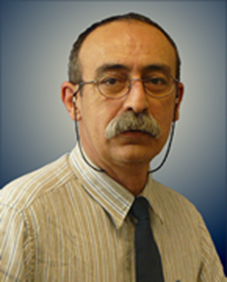 |
| Edward Richardson, University of Southampton (UK) Dr Edward Richardson is an Associate Professor in the Aerodynamics and Flight Mechanics group at the University of Southampton. He leads research activities on reactive and turbulent flows, with application to gas turbine and internal combustion engines. Edward’s research uses data generated with the world’s largest super-computers to develop new design methods for clean and efficient combustion processes. Prior to joining the University of Southampton, Edward undertook three years of post doctoral research at the Combustion Research Facility, Sandia National Laboratories, California, and completed Marie Curie Early Stage Research Training at the European Centre for Research and Training in Advanced Scientific Computation (CERFACS) in Toulouse, France. Richardson received his Ph.D. in Mechanical Engineering from Cambridge University in 2007. |
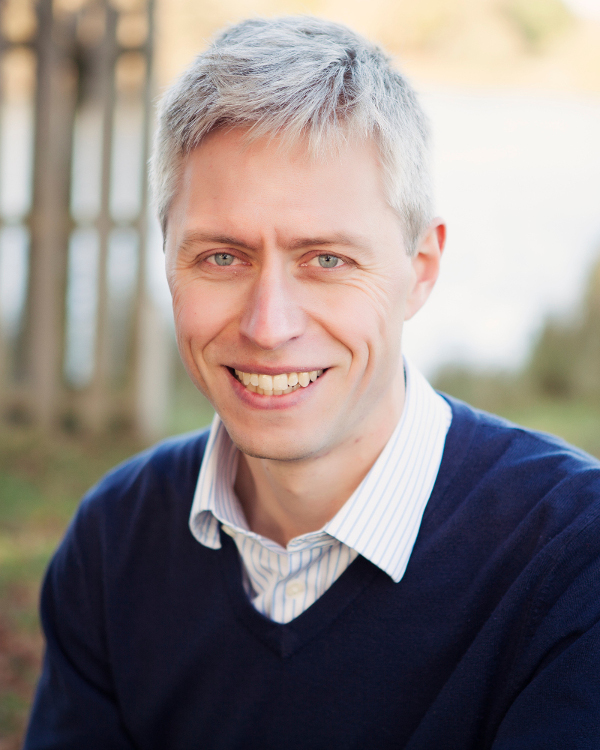 |
| Salvador Navarro-Martinez, Imperial College London (UK) Salvador obtained his Mechanical Engineering degree (Ingeniero Industrial) in the University of Zaragoza, Spain. During his undergraduate stage, he did a Research placement in the University Joseph Fourier of Grenoble, France, where he carried experimental measurements of surface tension of complex fluids. He obtained his PhD studies in the epartment of Aeronautics and Astronautics in the University of Southampton, where he worked on the topic of Numerical Simulation of Hypersonic Flows, specifically in the study of the heat transfer on deflection surfaces for planetary re-entry. He then moved to Imperial College where he worked as a Research Assistant on Combustion Modelling in the context of Large Eddy Simulations. He obtained the Sugden Award from the Combustion Institute (British Section) for the most significant contribution to combustion research in 2005 and 2007 . In October 2009, he was awarded a Royal Society University Fellowship in the topic of Droplet Size Distributions in Spray Atomization. |
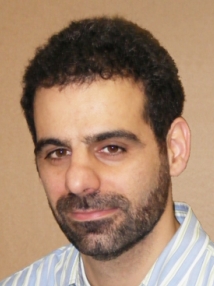 |
The deadline for abstract presentation is already passed, but we accept work-in-progress flashtalk contributions until September 6th, 2019. Please send us your flashtalk abstract and you will have the opportunity to present your work to the audience.
The participation in the workshop can be made through contributed presentations that are invited in all areas of numerical combustion. Contributed presentations (15 minutes talk followed by 5 minutes discussion) should be submitted with the following template:
• Title
• Presenting author: name, affiliation, e-mail address
• Each co-author: name, affiliation, e-mail address
• Abstract (up to one page)
From the full list of abstracts, 6 - 8 contributions will be selected for oral presentation, while the rest will be allocated as “flash talks”. For the flash talks session, authors are invited to prepare a 3-slide presentation and commit to present their work in 3 minutes. Further guidelines will be sent once the “flash talk” participants are selected.
The deadline for abstract contributions is June 30th, 2019.
Please send your abstract to: daniel.mira@bsc.es
40 years of combustion research in ICE. From simple experiments to HPC CFD
Authors: J. M. Desantes
Institution: CMT-Motores Térmicos
Abstract: CMT-Motores Térmicos is a research Institute of the Universitat Politècnica de València that started its R&D activities related to thermo- and fluid processes in ICE forty years ago. This presentation gives a historic perspective of the methodologies, procedures and experimental / computational tools throughout these years, formally divided into four decades.
When dealing with the development of both C.I. and S.I. engines, the ICE in-cylinder processes are really complex and challenging from the point of view of the experimental diagnosis, the understanding and conceptualization. This makes it very difficult to accurately predict them. Strong time and space dependent parameters, high peak in-cylinder temperature and pressure, important space restrictions, complex two-phase flow characteristics, complex chemistry coupled with turbulent flow leading to either premixed combustion, diffusion combustion and/or auto-ignition, all these phenomena have represented strong barriers that needed to be overcome when applying a more basic research approach and a physical know-how for the technical development of the ICEs, rather than the old and traditional trial and error procedures.
Going back to the early eighties of last century, the standard experimental equipment of an engine test cell allowed measuring practically only in-cylinder pressure, in addition to time averaged parameters such as torque, engine speed, intake and exhaust pressures and temperatures. With these it was possible to obtain an experimental estimation of the heat release rate based on simple space averaged diagnostic models. The predictive models were just as simple as the former ones and could be defined at best as “interpolation semi-empirical models”.
In these four decades the experimental diagnostic tools have significantly improved and this has contributed to generating extensive experimental data bases and a better and improved understanding of the physical/chemical processes that control the experiments. This improved knowledge coupled with the faster and cheaper computing facilities has led to developing accurate models based on RANS first, and LES later, that have been integrated in the methodologies for R&D and for the optimization of engine systems and engine behavior. DNS is just arriving.
Advances in Large Eddy Simulations of Combustion using Stochastic Methods
Authors: S. Navarro-Martínez
Institution: Imperial College London
Abstract: As High-Performance Computer (HPC) Power increases, so does the complexity of the challenges in combustion. Large Eddy Simulations (LES) applications started in combustion as a way to model turbulent mixing, where simple combustion models (Flamelet, Brass-Moss-Libby, etc.) were used. These regime-specific approaches were not enough to simulate flame-turbulence interaction, responsible of effects like quenching, ignition and flame stability common in realistic combustion engines. A second wave of combustion models aimed to circumvent these difficulties (FGM, CMC, etc.). However, the second generation of LES combustion models retain some of the problems of the first generation. Most of them were not LES-specific models but translation of RANS derived approaches. Stochastic models, through Probability Density Function (PDF) transport models, can potentially by-pass the limitations of second-generation models. They are well known since the late 70s, however, the cost outweighed its benefits and were restricted mostly to RANS and simple fuels.
As low-emissions, more efficient engines are designed, new combustion regimes are accessed. These new engines required more fuel flexibility, they are more prone to thermoacoustic instabilities, they required complex chemistry and they are more prone to use liquid fuels under extreme conditions. Stochastic approaches under LES (hereafter LES-PDF) can provide a general framework to tackle all these new challenges. The presentation will review new developments on LES-PDF methods: from spray atomization and droplet break-up, to novel combustion applications in thermoacoustic oscillations and supersonic combustion. Although most of the previous PDF work is based on Lagrangian Monte-Carlo approaches, most of the results presented will be using the Eulerian stochastic fields method.
In spray atomization, the LES-PDF model solves the sub-grid joint probability density function of the liquid volume fraction and surface density. The probability density function allows an instantaneous statistical description of the two variables, and therefore provides sub-grid droplets (or fragments) distribution, without any assumption on sphericity. LES-PDF can be used to characterise the nonlinear behaviour of thermoacoustic oscillations in realistic combustors. LES-PDF synergies well with novel analysis techniques such as Proper Orthogonal Decomposition, and Dynamic Mode Decomposition can provide information on the evolution of key flow quantities. Nonlinear time series methods such as phase-space reconstruction and recurrence plots can be also use visualise the nonlinearity of thermoacoustic oscillations. At high-speed combustion systems, the chemical source term depends not only on Temperature and reactive scalars but on pressure. This can be particularly important in non-ideal gases. Two new LES-PDF approaches are presented to simulate compressible reactive flow: a joint scalar-energy and a joint velocity-scalar-energy. The later used modified Langevin-type models and do not require a sub-grid velocity model. Both approaches naturally account for sub-grid fluctuations of pressure. A few examples of applications will be presented: compressible reactive layers, supersonic hydrogen flames and experimental scramjet. The presentation will conclude by looking a future trends and turbulent combustion bottlenecks, including the potential use of Artificial Neural Networks as sub-grid models or to complement LES-PDF approaches.
Turbulent Reacting Flow Modelling: Learning from Big Data
Authors: E. Richardson
Institution: University of Southampton
Abstract: TBA
Who can participate? The workshop is open to any researcher.
Cost? There is no registration fee.
We kindly ask you to register due to the limited availability of seats.
The official deadline for registration was closed on July 15th, 2019, but some places are still available. Please register on the link below and wait for confirmation.
Register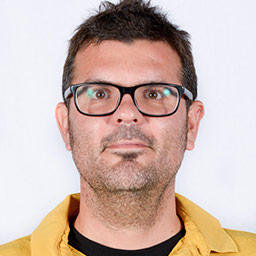
Senior Researcher
at Barcelona Supercomputing Center

Senior Researcher
at Barcelona Supercomputing Center

High Performance Computational Mechanics Group Manager at Barcelona Supercomputing Center
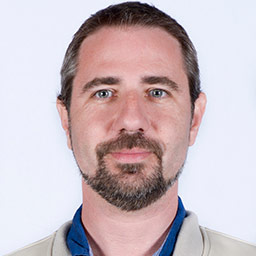
Physical and Numerical Modelling Group Manager at Barcelona Supercomputing Center